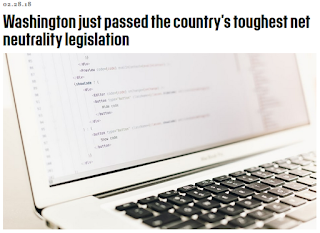According to an article in the
Chicago Tribune, the city of Aurora and its former records manager could be held legally responsible for endangering police officers by mailing their personnel files to an Illinois prisoner, according to a federal judge.
In an opinion and order denying the motion to dismiss the lawsuit, U.S. District Judge Sara L. Ellis stated the officers had met their burden for pleading their case under theories including state-created danger.
"Defendants perhaps confuse 'danger' with whether the private actor needs to actually commit harm to the plaintiffs for a state-created danger theory to apply," Ellis wrote. "If the government throws an individual into a snake pit, and the individual is not harmed by the snakes, but hurts himself escaping the pit, the government has still placed the individual in danger that has caused the individual harm."
In the above case, the records manager released information, in response to a FOIA request, that created a potential danger to the police officers now bringing this lawsuit. But it's not just information released through FOIA that can create this type of danger.
An even greater danger may be created when a government employee releases official information - "which includes all information that he acquired as part of his official duties or because of his official status" - outside of his own agency without going through the FOIA office. This can include releasing information to another agency, especially if that information has the potential to become public. Remember, if you received information during the course of your official duties you generally may not release that information to another agency, organization, or individual without following proper release and documentation procedures (i.e. FOIA).
That being said, a great deal of information may be released about you under FOIA if you are a military Service Member or Federal Civilian Employee.
32 CFR 505.7 -
Disclosure of personal information to other agencies and third parties, states:
The Department of the Army is prohibited from disclosing a record from a Privacy Act system of records to any person or agency without the prior written consent of the subject of the record...
Despite Privacy Act protections, all records must be disclosed if the Freedom of Information Act (FOIA) requires their release.
The following are examples of personal information that is generally not exempt from the FOIA; therefore, it must be released to the public:
(i) Military Personnel -
(A) Rank, date of rank, active duty entry date, basic pay entry date, and gross pay (including base pay, special pay, and all allowances except Basic Allowance for Housing);
(B) Present and past duty assignments, future stateside assignments;
(C) Office/unit name, duties address and telephone number (DOD policy may require withholding of this information in certain circumstances);
(D) Source of commission, promotion sequence number, military awards and decorations, and professional military education;
(E) Duty status, at any given time;
(F) Separation or retirement dates;
(G) Military occupational specialty (MOS);
(H) Active duty official attendance at technical, scientific or professional meetings; and
(I) Biographies and photos of key personnel (DOD policy may require withholding of this information in certain circumstances).
(ii) Federal civilian employees -
(A) Present and past position titles, occupational series, and grade;
(B) Present and past annual salary rates (including performance awards or bonuses, incentive awards, merit pay amount, Meritorious or Distinguished Executive Ranks, and allowances and differentials);
(C) Present and past duty stations;
(D) Office or duty telephone number (DOD policy may require withholding of this information in certain circumstances); and
(E) Position descriptions, identification of job elements, and performance standards (but not actual performance appraisals), the release of which would not interfere with law enforcement programs or severely inhibit agency effectiveness. Performance elements and standards (or work expectations) may also be withheld when they are so intertwined with performance appraisals, the disclosure would reveal an individual's performance appraisal.
There are many reason that we may choose to safeguard our personal information. The fact that it may be released to others, either because of error, misconduct, or because it is required to be released under FOIA and similar state public records laws, should be ample incentive to limit what information about ourselves we allow to be included in government records.

















